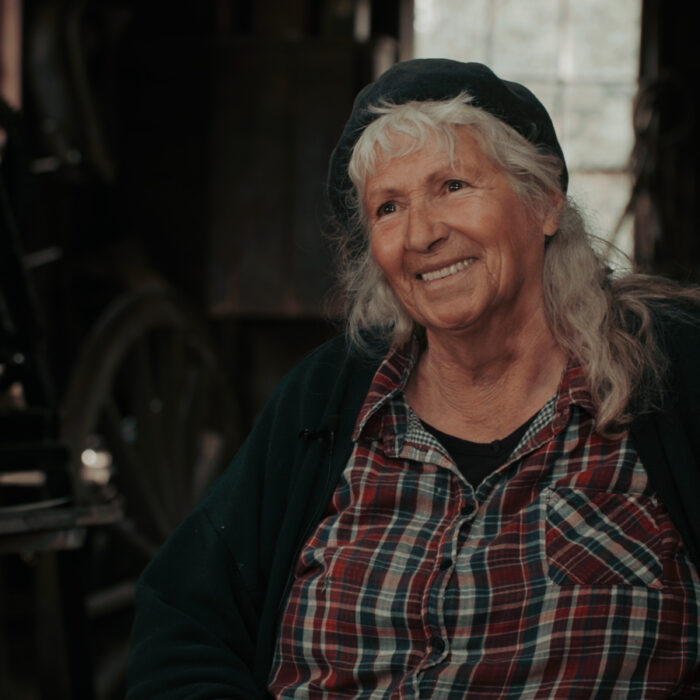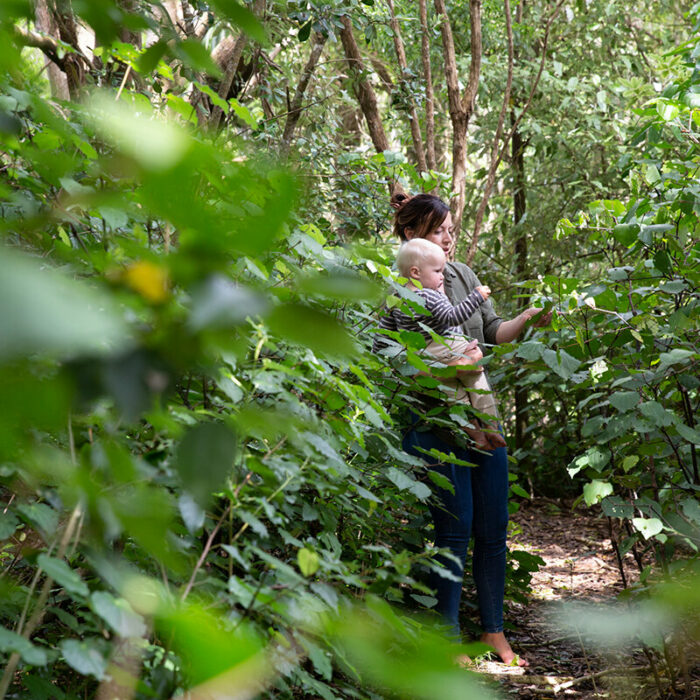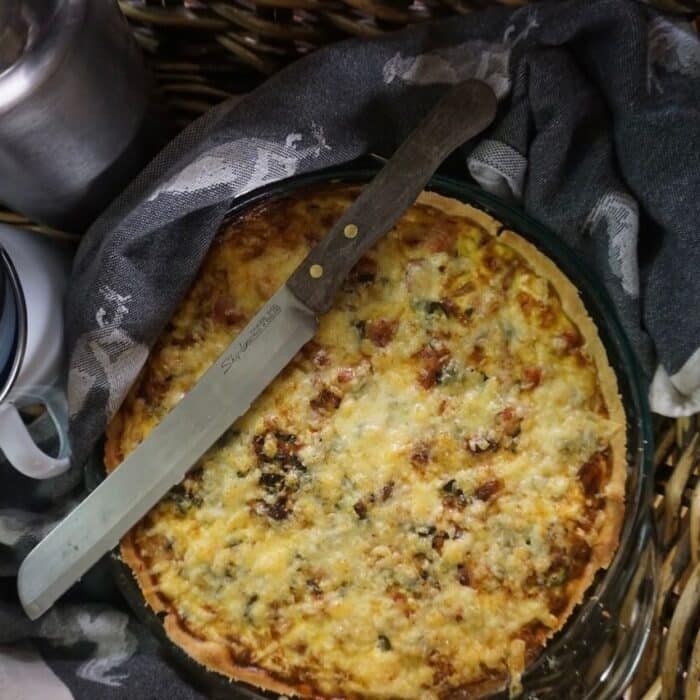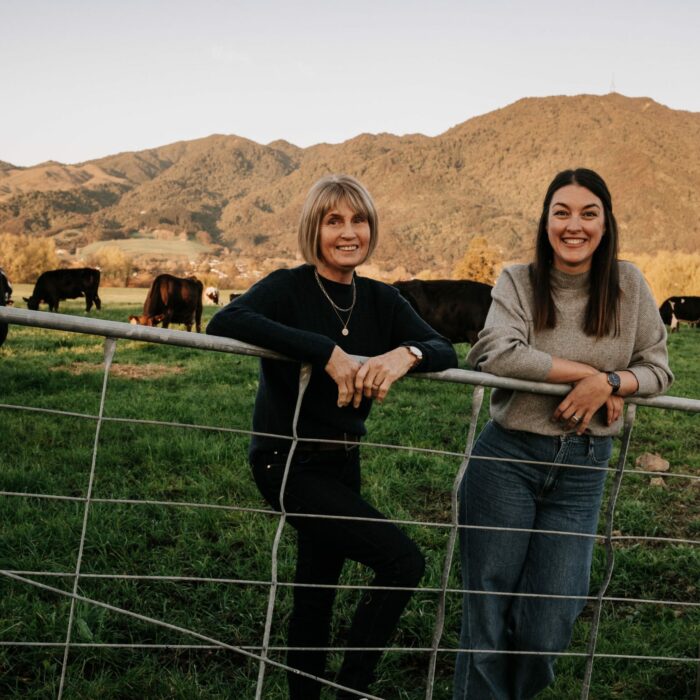13 March 2023
It Takes a Village
WRITER: ARPÉGE TARATOA (NGĀI TE RANGI, NGĀTI RAUKAWA, NGĀPUHI, NGĀTI RĀRUA)
PHOTOGRAPHER: CLAIRE MOSSONG
Ngā Hononga. Common Threads.
Content advisory: This story involves discussion of abuse and struggles with mental health. Whilst we strive to explore these subjects sensitively, we recognise this story may be challenging for some readers.
After years of living across the ditch in Australia, in 2022 Taera Ash came home to Kawerau in the Bay of Plenty. But this was no ordinary trip home to see family. Heavily pregnant and knowing she couldn’t raise the child, Taera was on a mission to find a loving family for her baby from within her wider whānau. After reconnecting with her cousin, Jasmin Savage, and Jasmin’s partner, Storm Kingi, Taera found herself and her newborn, Mio, enveloped with love inside a beautiful and natural “village” that cared for them both.
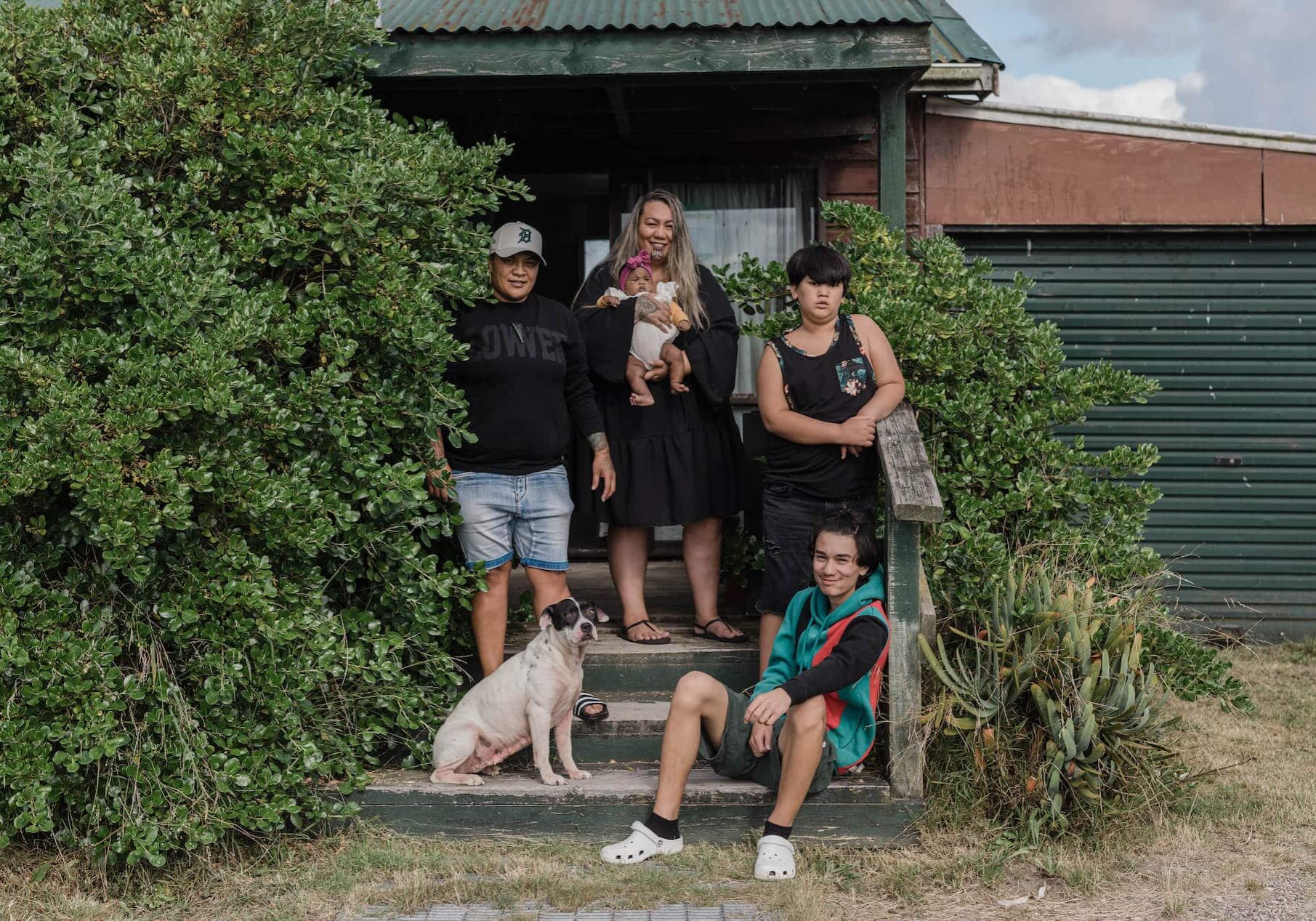
Storm and Jasmin holding baby Mio, together with Jasmin’s children, Anaura and Takuira (who usually lives in Kirikiriroa Hamilton). While their house is being renovated, they’re currently staying together with Taera at Jasmin’s sister Carrie’s house. It’s known as their “village,” and many whānau have been through its doors when needing a reset or starting a new journey. It’s the place where you get a fresh start, are well supported to get back on your feet and encouraged to trust yourself again. “For the first week or two after she was born, I actually didn’t let any of the kids in the room or come near Mio,” Jasmin says. She explains that Mio was born on Anaura’s birthday and initially he was upset because she stole the limelight. “Just because she’s still so young and susceptible to all the bugs. So none of the kids got to have a real bonding moment with her in the beginning, but they’ve all warmed to her.”
Raised by her grandmother, Taera and her brother were children of whāngaitanga. In te ao Māori, gifting one’s child to another family member remains a common practice. In te ao Māori – where whakapapa, heritage and whenua are so deeply intrinsic to individual and collective identity – this tradition helps children know who they are and where they come from. Like many children not raised by their biological parents, Taera and her brother’s childhood was full of love but, they reached an age where they craved connection to their birth mother.
When Taera eventually joined her mother in Australia, she could never have imagined she’d end up hapū the way she did. Knowing that she wanted to choose life for the child, but also aware she wouldn’t be able to raise her because of the trauma associated with her conception, Taera – who is of Ngāti Kahungunu, Ngāti Pikiao (Te Arawa), Ngāti Porou and Ngāti Rongomai descent – wondered what to do with her baby and was overwhelmed with the amount of family support on her return, which made the process a lot easier. Realising the baby had come to save her – bringing her home to her whenua – but was not meant for her was an extremely emotional experience. “I put myself into a counselling service because even though I knew that I’d chosen to do this, I knew that it was going to impact me emotionally, mentally, psychologically and physically.”
Thinking back, Taera, 26, says, “After my dad passed away, I just really felt like I had no reason to live, and I didn’t want to be here anymore. So, I think she came to save me. But at the same time because of the constant reminder of how she was conceived, I just wasn’t in a good space to provide the love and care that she deserved.” Carrie, a close cousin of Taera’s and Jasmin’s older sister, helped put a whānau action-plan in place to support Taera.
Jasmin, 36 – of Ngāti Pikiao (Te Arawa) and Tuwharetoa – already had two older children, now aged fifteen and eleven, from a previous relationship, and never saw herself having more. Storm, 33, of Tūhoe and Te-Whānau-ā-Apanui descent, however, had always wanted an opportunity to raise a child of her own. When Taera approached them about whāngaitanga, Storm felt like this was the answer she’d been waiting for. Although she’d suggested alternative options of conception to Jasmin years prior, it didn’t align with Jasmin’s ethos. For Storm, Taera’s proposal was a clear “yes”; for Jasmin, it required a lot more conversation. Laughing about it now, Jasmin reflects on how much collective “wearing down” it took from both Storm and Taera. “Storm was really keen, and it wasn’t that I wasn’t, but for me, I already have my kids and they’re grown up now...I’m happy with my life, and also remember the sleepless nights!”
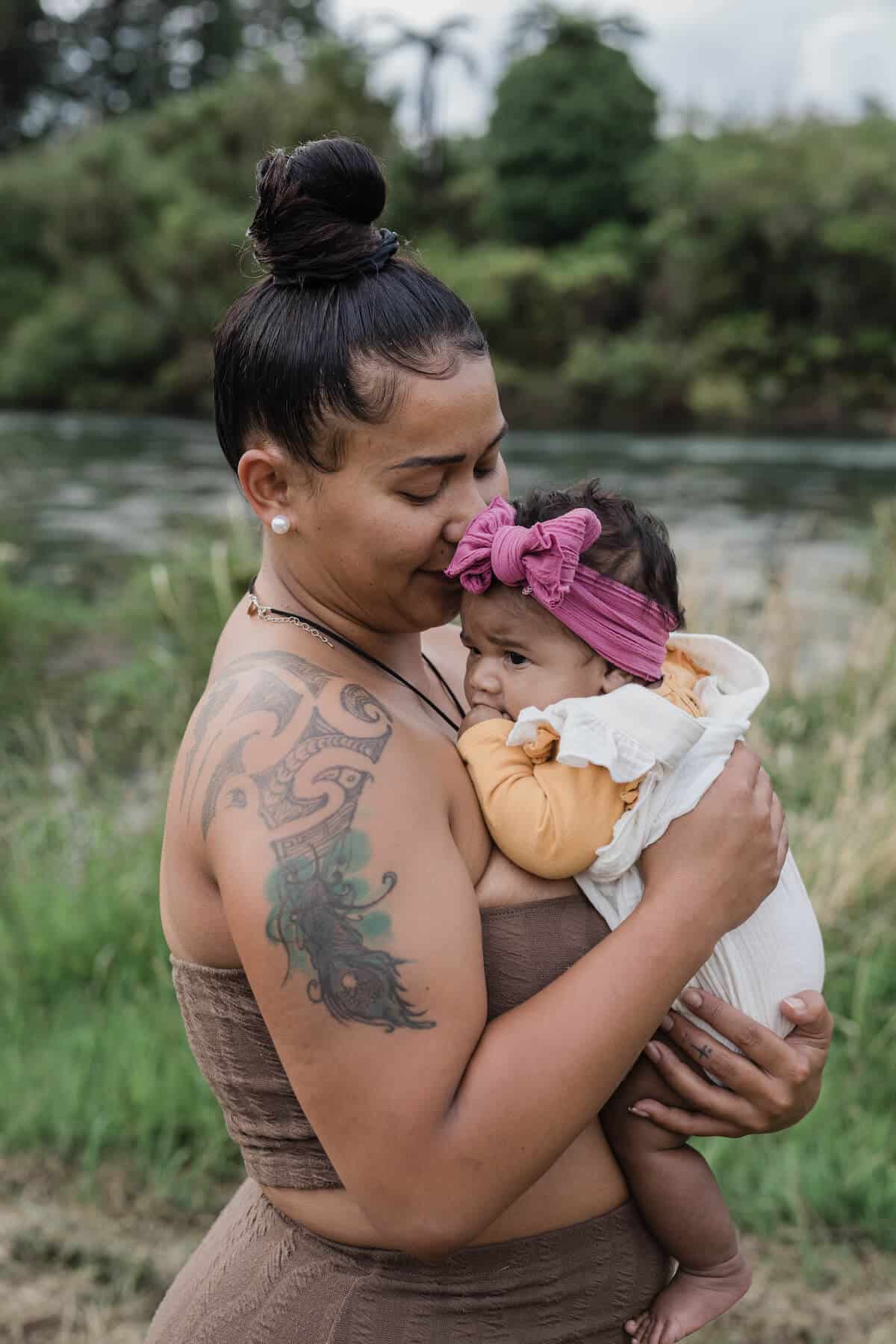
Before making a decision, Jasmin felt it was important to understand the perspectives of people who had grown up as whāngai children, and also what it is like for a mother to whāngai her child. Sitting at the table with her sister Carrie – who was raised by their aunty – one day before the baby arrived, Jasmin asked for her personal experiences of being a whāngai baby, and the challenges she faced. Even though Carrie knew her biological mother and siblings, she still had to go through an identity process and feelings of not being good enough. Jasmin’s mother also gave her some great insights into her process of whāngaitanga with Carrie and widened Jasmin’s perspective on what it can look like in different whānau dynamics.
These personal insights from family members helped her, Storm and Taera consider what they could do collectively to ensure the baby had as much access to her biological connections as possible. “There is a huge fear of ‘What if someone comes in and takes her away?’ But eventually she is going to get older and go through an identity journey, because everyone does. I want us to make that process as simple and as light for her as we possibly can,” Jasmin says.
Amongst all of the conversations Storm and Jasmin had to have, it was agreed that if her biological father did want to have contact with her, they wouldn’t just shut that down. “I do remember before Mio came, Storm was heavy on the idea of legal adoption. That was something we discussed but it never sat well with me because it’s not a te ao Māori way,” says Jasmin. Of course, they would need to prioritise her safety, but it never sat well to cut Mio off from an entire line of her genealogy. If that day were to come, Jasmin and Storm would have everything in place to ensure her safety, whilst also supporting access to her whakapapa.
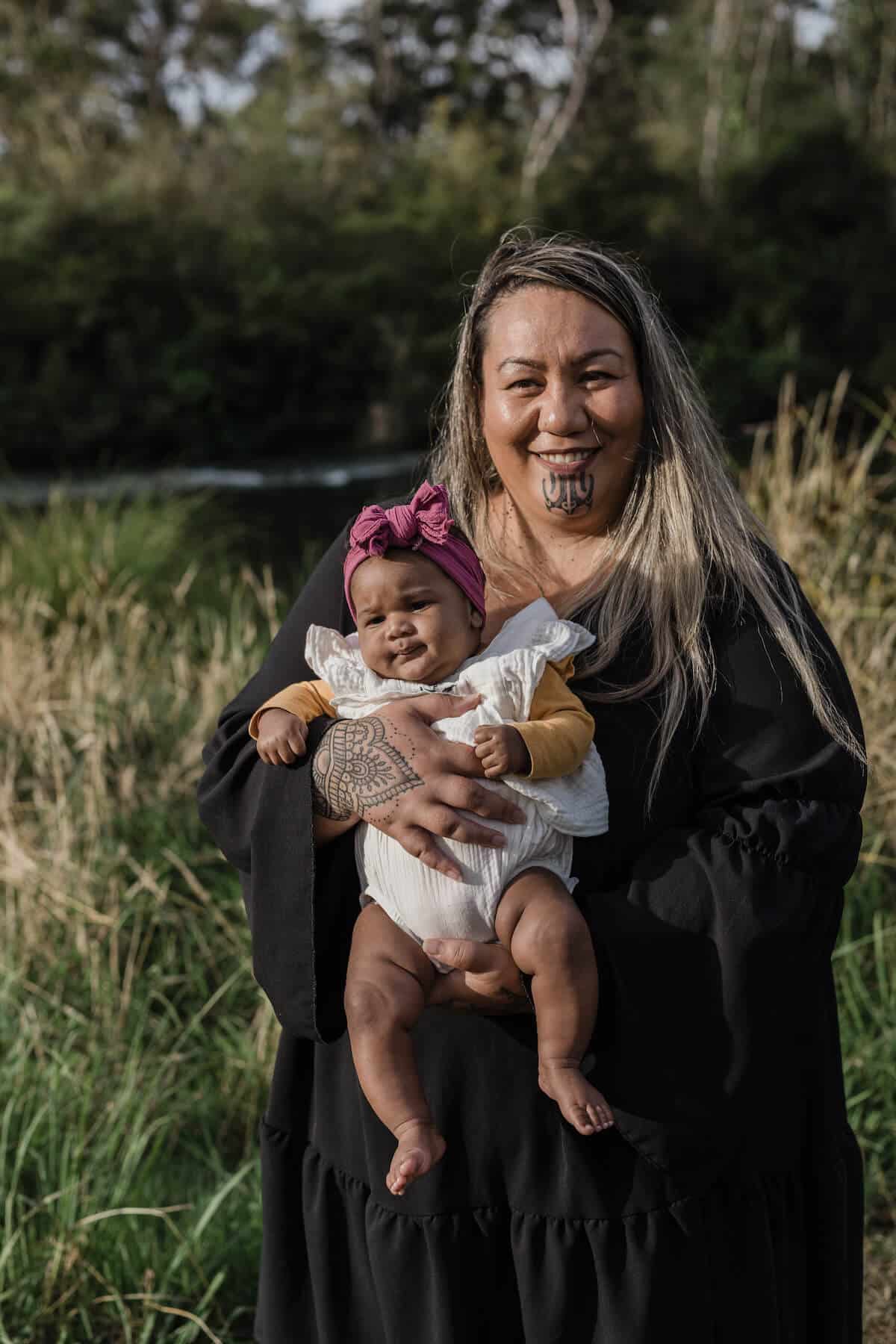
“We’ve just been gifted with what I guess you could call the kaitiakitanga of ensuring she is well loved, nurtured and supported until she gets old enough to figure out what it is that she wants and needs for herself. I look at her as an opportunity for growth on both sides. Learning, but also to help guide her as best as we can.”
Jasmin
Whilst whāngai can be translated to mean “adoption” or “fostering,” like most kupu Māori, there is no English translation that accurately reflects the concept of the word. It more truly translates to “feeding, nurturing and raising up,” which is exactly how Jasmin perceives her role in Mio’s life. “At the moment, we’ve just been gifted with what I guess you could call the kaitiakitanga of ensuring she is well loved, nurtured and supported until she gets old enough to figure out what it is that she wants and needs for herself,” she says. “So I don’t look at her as my property; I look at her as an opportunity for growth on both sides. Learning, but also to help guide her as best as we can.”
Taera moved in with Jasmin and Storm, and found that living in close quarters with them made her privy to some of these initial conversations. There were often fears around whether she would be abandoned to look after and raise a child that reminded her of an extremely dark time in her life. Not having a legally binding document or agreement between them, there was always a risk one party would change their mind. However, living under the same roof, everyone was able to reassure each other in their fears and concerns. Taera recalls moments where she would be crying in her room, worried that Jasmin and Storm would eventually pull out, and one of them would come in and reassure her of their commitment to raising the baby as their own.
Together with Taera’s psychologist, the three of them came up with a birth plan Taera was comfortable with, whilst also honouring Jasmin and Storm’s desires for the baby. When it came to naming the baby, Jasmin recalls one evening on a full moon she sat outside looking into the night sky and pondering the pending arrival of this baby. The name Mio came to her mind and though her own interpretation of the name is quite beautiful, she was unsure of the actual meaning behind it. After announcing the arrival of baby Mio publicly, a friend reached out after seeing Mio’s name in the announcement and told her it meant “mine” in Spanish. For Jasmin, it reaffirmed baby Mio was meant to come into their lives when she did.
As prepared as they were, the birth was always going to be filled with surprises. For one, Storm had planned to be at the birth so she could have skin-on-skin contact immediately. They’d decided that she was going to be the primary carer and “number one mummy.” However, circumstances meant Jasmin ended up at the delivery and caught baby Mio as she entered the world. Whilst Storm hadn’t been met with any challenges during the whāngai process, it hadn’t truly hit her that she was going to be a mother until Mio arrived. Her description of the motherhood experience so far is simply “tiring” – which makes Jasmin chuckle as she recalls her experiences with her older two.
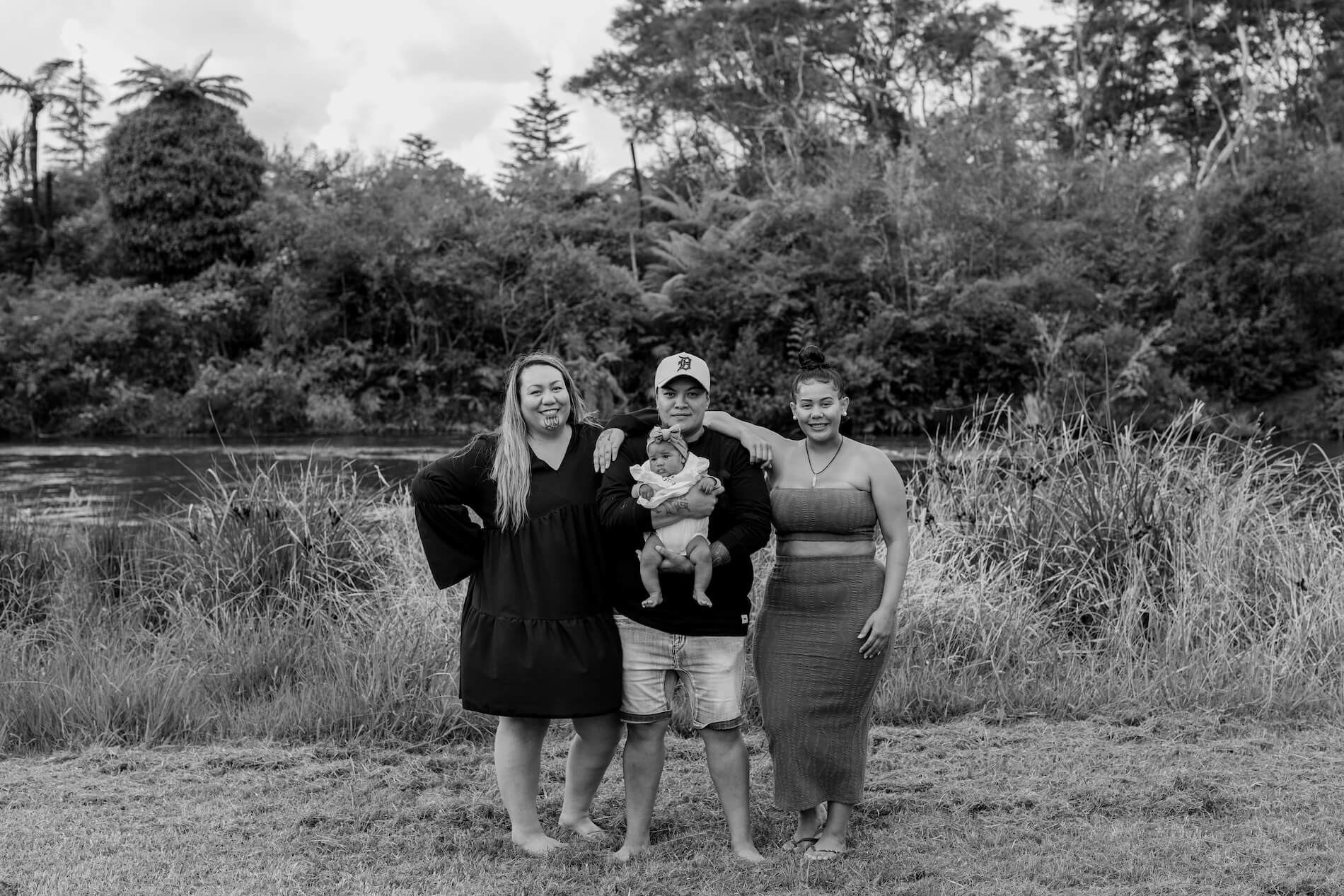
Jasmin and Storm have been extremely supportive of whatever Taera needed to do to take care of herself and her wellbeing following the birth. Discussions around expressing breastmilk had happened before the delivery, but Taera knew she couldn’t emotionally. Jasmin’s older sister Carrie was – and continues to be – a key part of the family’s support system. Whilst Taera’s psychologist had prepared her for the grieving her body would go through without a baby to nurture, Carrie helped Taera understand how normal it is to experience all the feelings and emotions she was having. “Carrie has shared with me to just allow these emotions to flow – like the grieving, the letting go, the separation, the guilt, the feeling alone inside. Because, you know, you go through that big change.”
Following the delivery of Mio, who was just over two months old at the time of interview, Taera struggled to be around her and even to look at her. There were so many thoughts and emotions involved – wanting to cuddle the baby but not wanting to cuddle her because they might get attached; not wanting to look at her for fear of the reminder of her conception; not wanting to impose on Jasmin and Storm in case they worried that she wanted the baby back – and so much more. With so many fears, she was extremely “down in the dumps” and couldn’t work out why she was constantly crying. The standout feeling was a deep sense of loneliness, of rubbing her belly without anything there anymore.
The biggest part of her healing journey was the advice she received from Carrie. With the house just minutes away from their awa, Carrie encouraged Taera to go down to the water’s edge and release her grief, allowing herself the grace to feel all the natural feelings that were occurring. “I actually did it in the rain the first time and washed away all of it – it cleansed me. I still have to do that, you know, it’s not a one-time process. You literally have to add that to your self-care plan.”
Living together has added an element of support and understanding throughout the whole process for everyone. “It’s so much easier with them and baby being here, and being able to support each other. Like, it’s not just a hard journey for me,” Taera says. She empathises with Jasmin and Storm in their experiences of the “newborn phase” and they empathise with Taera in all the chemical, emotional and physical changes she has to go through. They support her emotionally and encourage her to engage with the baby in her own time and allow a natural relationship to form with her. “When we were growing up, we had really bad abandonment issues because my mum wasn’t around,” Taera says. “Me just being able to be around makes it a much easier process because yeah, we grew up with my nan giving us everything. But we always had to ask questions like, ‘Why doesn’t Mum call? Why don’t we see her?’”
Having listened to her sister’s experience of being a whāngai baby, Jasmin emphasised the importance of having a plan to navigate that for Mio. Part of it is sharing the experience of the love involved in Mio’s life before she was born, and the tohu she was for Jasmin and Storm. “Taera really just gifted Storm what she probably wouldn’t have gotten otherwise. She made one of Storm’s life dreams come true,” Jasmin says, anticipating what they’ll tell Mio in the future. “That’s our focus: ‘It’s not that you weren’t loved. In fact, quite the opposite. You were so loved by many and we wanted to be the ones honoured to raise you, and your mum helped us do that.’” Whilst Taera had angled to be recognised as an aunty, Jasmin and Storm have gently encouraged her to accept her role as the biological mother and allow Mio the opportunity to know her in that respect.
“It just feels like sometimes I forget she’s actually Mio’s birth mum, that’s how chill it is,” Storm says about having Taera in the home. Having a brother who was whāngai too has helped Storm be at ease with the process, and, reflecting on the journey – from the moment they were asked, to now raising their Mio – Storm couldn't be happier.
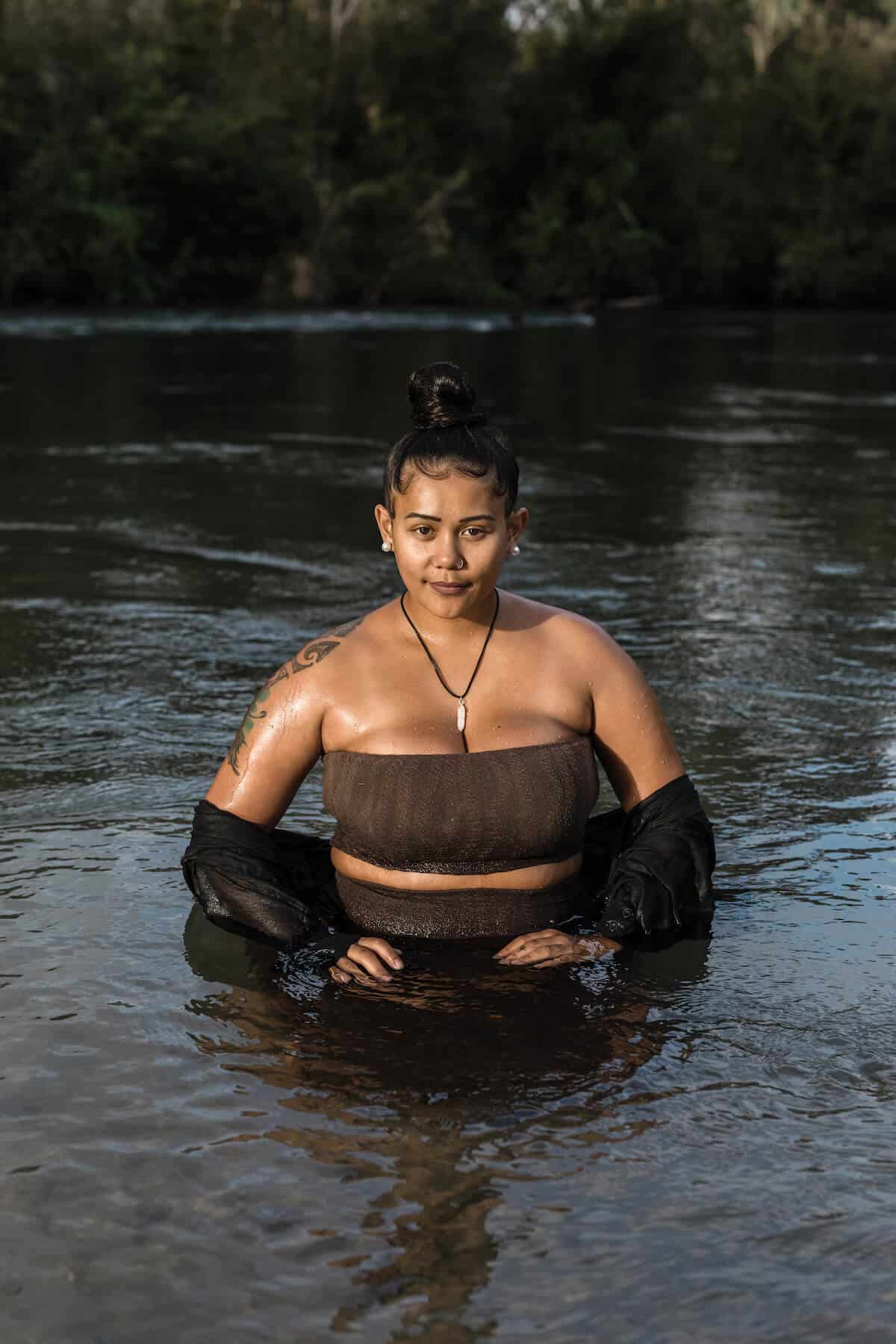
Whilst Storm was the initial driver, Jasmin has found the whole process easier now that Mio has arrived. “It goes without saying: everything’s so much easier when you have her. For Storm, she’s still learning how to accept that the village is there, you know? First baby, so she wants to do everything by herself. She doesn’t want to rely on anybody – and I’m over here like, ‘Rely!’” The process has also paved the way for Jasmin to receive her moko kauae – something she has been drawn to for some time now. “I went through this real deep yearning for a while, like it was quite overwhelmingly emotional for me. I remember going to our Savage hot pools here in Kawerau, and I just cried. I was crying and crying, and asking for guidance to complete the work that needs to be done internally so that I can move into that next chapter. And then Taera and Baby came, and everything kind of just fell into place from there.”
Taera, meanwhile, says, “There’s no regrets – I had to cry the other day because I felt so blessed. I believe that Mio was sent to me to restore my life and to bring me home. It’s obvious she wasn’t for me, but it was to bring me home and really make me step back from the life that I had.”
Despite the initial fears and the unknown future of baby Mio in this world, thanks to Taera’s strong whānau unit, there is nothing but love, nurture and support surrounding her. For this group of wāhine, the process of whāngaitanga gives them hope for Mio’s future ability to navigate who she is and where she comes from with as little disturbance to her world as possible.
Glossary. Awa, river. Hapū, pregnant. Kaitiakitanga, guardianship/stewardship. Kupu Māori, Māori word. Moko kauae, chin tattoo worn by women. Te ao Māori, the Māori world. Tohu, a sign, guidance, direction, symbol or divine message. Wāhine, women. Whakapapa, genealogy, lineage, descent. Whāngaitanga, to be raised by/cared for by another family member, relative, close relation. Whāngai whānau, family who raise/care for the child (not biological parents). Whānau, family. Whenua, land.
If you are struggling and need to talk to someone, free text or call 1737 to speak to a trained counsellor.
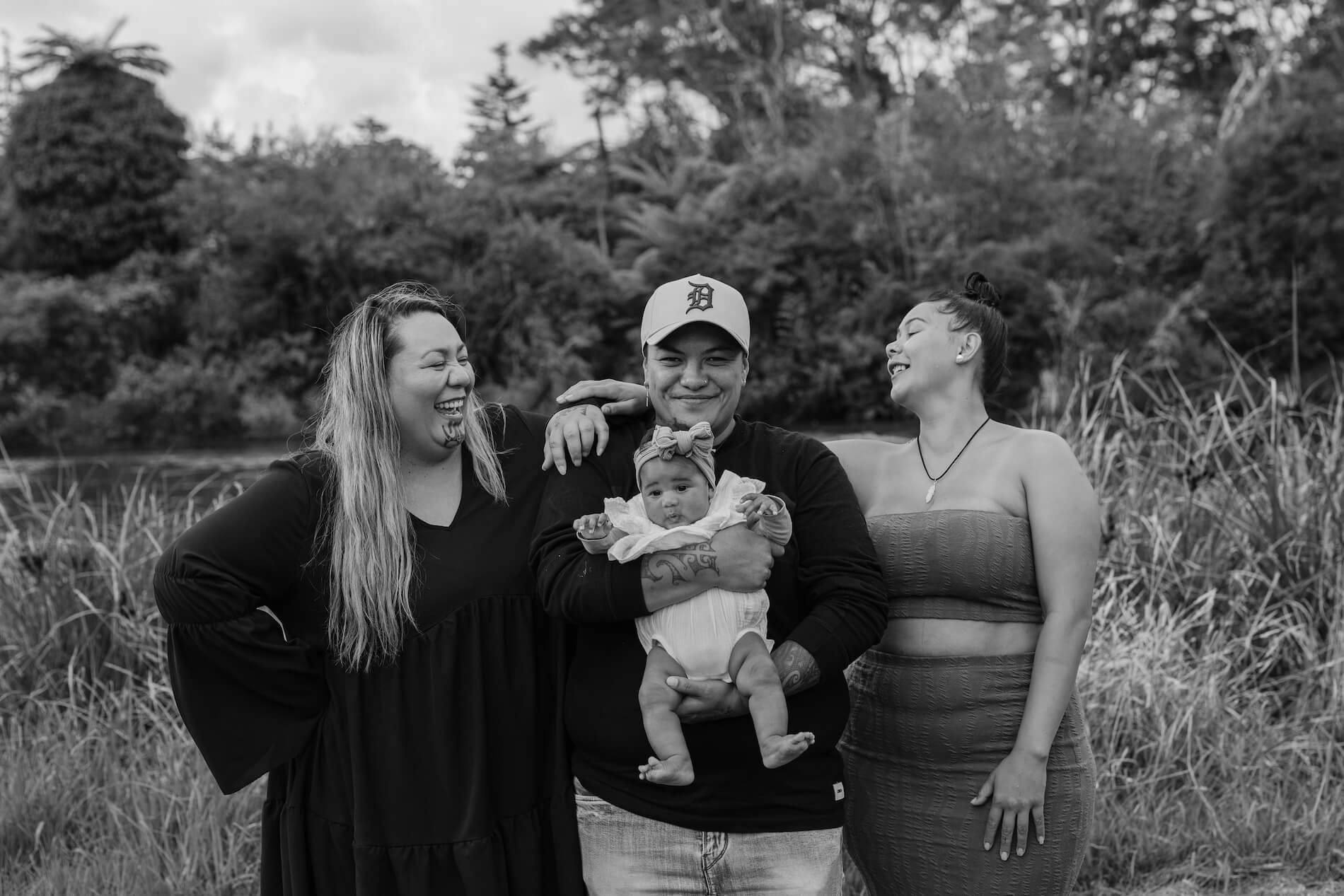

This story is part of THREAD, a year-long project by Shepherdess made possible thanks to the Public Interest Journalism Fund through NZ On Air.
If you enjoyed this story, please share with someone else.
This story appeared in the Ngahuru Autumn 2023 Edition of Shepherdess.
Get your hands on a copy.
Related Stories
Judy Waterson
Nestled among snow-capped mountain ranges and the lazy Waitaki River, you’ll find Judy Waterston firing up the forge and pumping the bellows at the historic Nicol’s Blacksmith Shop in Duntroon.
Nature’s Medicine
With the help of her enterprise, Hau Botanicals, Mahuru Wilcox is a mana wahine helping others to connect to nature and te ao rongoā Māori.
